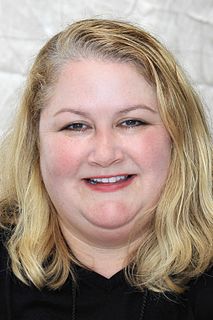A Quote by Richard Ford
Literature should not be exclusive, it should be inclusive. My general view is that you can't, based on your own experience, project what a book will do for someone else. That's why I don't review books.
Related Quotes
I am sympathetic to the general form of Aristotle's view: the exercise of complex and more inclusive abilities is not anything in itself that is or necessarily should be valued over simple and less inclusive abilities. Rather, value depends on what the abilities are and the ends to which they are put.
I would be wonderful with a 100-year moratorium on literature talk, if you shut down all literature departments, close the book reviews, ban the critics. The readers should be alone with the books, and if anyone dared to say anything about them, they would be shot or imprisoned right on the spot. Yes, shot. A 100-year moratorium on insufferable literary talk. You should let people fight with the books on their own and rediscover what they are and what they are not. Anything other than this talk.
The people who review my books, generally, are kind of youngish culture writers who aspire to write books. When someone writes a book review, they obviously already self-identify as a writer. I mean, they are. They're writers, they're critics, and they're writing about a book about a writer who's a critic. So I think it's really hard for people to distance themselves from what they're criticizing.
... you should wait until the book is finished before making a judgment on its content. By the time you have gone through twenty drafts, the characters may have developed lives of their own, completely separate from the people you based them on in the beginning. And even if someone, at some time, gets upset with your words - so what? Live your life, sing your song. Anyone who loves you will want you to have that.
What does purpose mean? It means the deepest desire for our short lives to mean something. . . . To speak a language of purpose is to return to first principles and to be able to answer, in plain English, the plain questions of Why? Why should we chip in to help someone else? Why should we defer gratification? Why should we care about the long term? Why should we trust anyone who seems to be limiting our ability to do what we want?
Books can be possessive, can't they? You're walking around in a bookstore and a certain one will jump out at you, like it had moved there on its own, just to get your attention. Sometimes what's inside will change your life, but sometimes you don't even have to read it. Sometimes it's a comfort just to have a book around. Many of these books haven't even had their spines cracked. 'Why do you buy books you don't even read?' our daughter asks us. That's like asking someone who lives alone why they bought a cat. For company, of course.
English is, from my point of view as an Americanist, an ethnicity. And English literature should be studied in Comparative Literature. And American literature should be a discipline, certainly growing from England and France, Germany, Spain, Denmark, and the Native traditions, particularly because those helped form the American canon. Those are our backgrounds. And then we'd be doing it the way it ought to be done. And someday I hope that it will be.
Reading is merely a surrogate for thinking for yourself; it means letting someone else direct your thoughts. Many books, moreover, serve merely to show how many ways there are of being wrong, and how far astray you yourself would go if you followed their guidance. You should read only when your own thoughts dry up, which will of course happen frequently enough even to the best heads; but to banish your own thoughts so as to take up a book is a sin against the holy ghost; it is like deserting untrammeled nature to look at a herbarium or engravings of landscapes.
Learning should be engaging. Testing should not be the be all and end all. All students should have a broad curriculum that includes the arts and enrichment. Students should have opportunities to work in teams and engage in project-based learning. And student and family well-being should be front and center.
Religion should be subject to commonsense appraisal and rational review, as openly discussible as, say, politics, art and the weather. The First Amendment, we should recall, forbids Congress both from establishing laws designating a state religion and from abridging freedom of speech. There is no reason why we should shy away from speaking freely about religion, no reason why it should be thought impolite to debate it, especially when, as so often happens, religious folk bring it up on their own and try to impose it on others.
You don’t want a general houseworker, do you? Or a traveling companion, quiet, refined, speaks fluent French entirely in the present tense? Or an assistant billiard-maker? Or a private librarian? Or a lady car-washer? Because if you do, I should appreciate your giving me a trial at the job. Any minute now, I am going to become one of the Great Unemployed. I am about to leave literature flat on its face. I don’t want to review books any more. It cuts in too much on my reading.
For the judging of contemporary literature the only test is one's personal taste. If you much like a new book, you must call it literature even though you find no other soul to agree with you, and if you dislike a book you must declare that it is not literature though a million voices should shout you that you are wrong. The ultimate decision will be made by Time.







































